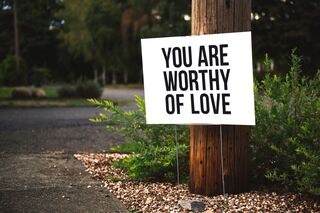Grief
Thoughts for Survivors on Mothers Day
Five steps we can take to manage the loss and grief.
Posted May 7, 2022 Reviewed by Vanessa Lancaster
Key points
- Not every son or daughter wants to celebrate Mother's Day, especially survivors of trauma and childhood abuse.
- We have choices about how to deal with all the feelings that come up on Mother's Day.
- Abuse survivors can acknowledge their grief, nurture someone or something they love, and unplug from social media to manage Mother's Day.

Mothers Day Is Not a Happy Holiday for Survivors
Not every daughter or son wants to celebrates Mother’s Day. We are taught to believe that we need to respect and love our mothers.
For those of us who have been hurt or traumatized by our mothers, we are told we need to forgive them and move on. On many occasions people tell me, “my mother did the best she could.” These sentiments are coming from a place of goodness, but in many cases that does not match the childhood we survived.
It took me years of therapy to come to terms with my history of childhood abuse. I did not want to believe that my own mother did not protect me or hear me. When I talked in therapy about my relationship with my mother I would say things like, “How could a mom do that to her own daughter?”
Through the years I have met men and women who felt like they did not have a mother. I have met people who have been abandoned or emotionally and physically abused by their moms. On some occasions I have counseled clients who were sexually abused by their moms. I have talked to many colleagues and clients who felt parentified and made to feel responsible to protect and take care of their mothers as children.
The impact of growing up motherless leaves devastating effects. Some people resort to self-destructive tendencies to mask their pain and shame. Some of the common behaviors reported in reaction to being motherless are restricting food and joy, abusing alcohol or drugs and in some cases re-enacting abusive behaviors in intimate relationships as partners or parents.
We Are Not Alone

For all of us out here who are dealing with feelings of shame and loss on this Mother’s Day, remember you are not alone. We have choices about how to deal with all the emotions that come up each year, on this day.
Earlier in my recovery, I isolated and went into shame attacks on Mother’s Day. There were years when the pain felt so intense, I just wanted to disappear. I know now that many people have felt similar feelings when the loss of the mother they never had is triggered.
One of the most important lessons I learned from my therapist was that the behaviors or limitations of others was not about me. If you came from a family where your mother did not protect you, abused you, or made you feel responsible for her well-being, that was about her!
We are not the cause of other people’s choices. Not all parents are equipped to love and nurture us the way we want to be taken care of. That does not make us unlovable. Rather than sit in the pain and anguish of this loss, we can turn to self-care and self-compassion. If you are grappling with pain and sadness as another Mother's Day comes and goes, consider using one or some of these strategies.

Tips for Taking Great Care of Yourself on a Difficult Day
1. Take some time today to acknowledge your grief. Rather than dwell on it and let it consume you, allow yourselves fifteen minutes to express whatever emotions come.
If you feel sad, give yourselves permission to cry. If you feel angry that you do not have a mother you want to celebrate, validate the feeling and find ways to express it. Write about the anger. Reach out to a friend who understands what it’s like to feel motherless.
2. Think about some of the women you have met through the years, whether it be a teacher, therapist, family friend or coach. Write down sayings or statements they made that left you feeling loved and cared about. Picture one or all of them standing with you, wrapping their arms around you saying: You are loved. You are worthy. You are a good person. You deserve to live a life full of kindness and self-compassion.
3. Take time today or everyday to nurture someone or something. Create a plan. Plant in your garden. Spend time with your pets. Sit with your child or children and instill messages of love and joy.
4. Unplug from social media. Step away from pictures or stories that result in you feeling more lonely or triggered. Set boundaries. Decide what you can and cannot do on this day. Ask yourselves, “Am I making this choice out of guilt?” Focus on self-care. Go for a hike or take a yoga class. Go to the beach or try a new recipe. Make plans for yourselves that are about comfort and connection.
5. Reach out to mom figures you have met through the years. Tell them three things you love about them. Call one of them and ask them what they love about you!


